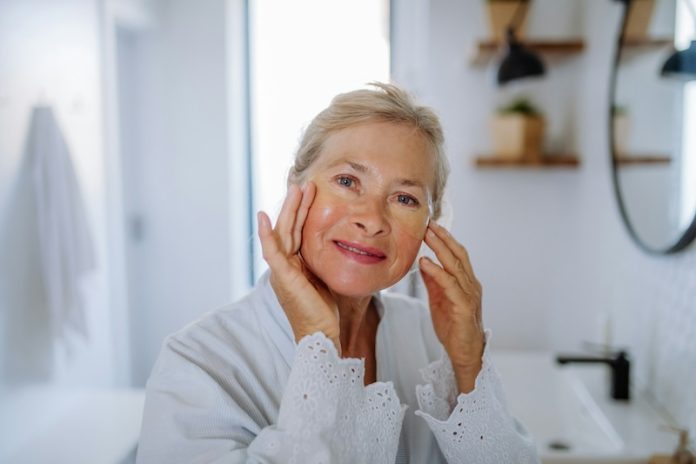
High blood pressure, also known as hypertension, is a common condition among older adults, but many people are unaware of how much damage it can cause to their kidneys and eyes.
These organs rely on small, delicate blood vessels to function properly, and high blood pressure can strain and damage these vessels over time.
For people over 60, this can lead to serious health problems, including kidney disease and vision loss. Understanding this connection can help individuals take steps to protect their health.
The kidneys play a crucial role in filtering waste and excess fluids from the blood. They do this using tiny networks of blood vessels called nephrons. When blood pressure is consistently high, it puts extra force on these vessels, causing them to weaken or become damaged.
Over time, this can reduce the kidneys’ ability to filter blood effectively, leading to a condition called chronic kidney disease (CKD). If left untreated, CKD can progress to kidney failure, where the kidneys stop working completely. At this stage, treatments like dialysis or a kidney transplant may be needed.
Research shows that high blood pressure is one of the leading causes of kidney disease in older adults. Studies have found that more than half of people with CKD also have high blood pressure, highlighting the strong link between the two conditions.
Unfortunately, kidney disease often develops silently, with no obvious symptoms until it becomes severe. This is why regular check-ups are essential for detecting and managing kidney problems early.
The damage caused by high blood pressure isn’t limited to the kidneys—it can also have a serious impact on eye health. The eyes contain delicate blood vessels that are essential for vision, particularly in the retina, which processes light and sends signals to the brain.
High blood pressure can cause these vessels to become narrow, leak, or even burst, leading to a condition called hypertensive retinopathy. Symptoms of this condition may include blurred vision, dark spots, or, in severe cases, sudden vision loss.
Hypertensive retinopathy is just one way high blood pressure affects eye health. It also increases the risk of other eye problems, such as glaucoma and macular degeneration. Glaucoma occurs when pressure builds up inside the eye, damaging the optic nerve.
People with high blood pressure are more likely to develop glaucoma, which can lead to permanent vision loss if untreated. Similarly, macular degeneration, a condition that affects central vision, is more common in individuals with poorly controlled blood pressure.
The numbers are concerning. Studies suggest that people with high blood pressure are up to four times more likely to develop serious eye problems compared to those with normal blood pressure.
For older adults, this can significantly affect daily activities like reading, driving, or recognizing faces, impacting their quality of life.
The good news is that high blood pressure can be managed, and taking steps to control it can protect both your kidneys and your eyes. Medications prescribed by your doctor, such as ACE inhibitors or calcium channel blockers, can help lower blood pressure and reduce the strain on your blood vessels.
Lifestyle changes are also essential. Eating a healthy diet that’s low in salt and rich in fruits, vegetables, and whole grains can improve blood pressure and support overall health. Regular exercise, maintaining a healthy weight, and avoiding smoking are also effective ways to reduce risk.
Routine screenings are key for early detection. Regular blood pressure checks, kidney function tests, and eye exams can help catch problems early, when they’re easier to treat.
For example, detecting hypertensive retinopathy early can prevent more serious damage to your vision, while identifying kidney problems in their early stages can help slow disease progression.
In conclusion, high blood pressure after 60 is not just a concern for your heart—it also poses a serious threat to your kidneys and eyes. By managing blood pressure through medication, lifestyle changes, and regular check-ups, older adults can protect these vital organs and maintain their health and independence.
Awareness and action are the first steps to preventing the silent but serious damage that high blood pressure can cause.
If you care about high blood pressure, please read studies about breakfast for better blood pressure management, and the gut feeling that lowers blood pressure.
For more health information, please see recent studies about how the dash diet helps lower blood pressure, and how to eat your way to healthy blood pressure.
Copyright © 2025 Knowridge Science Report. All rights reserved.



